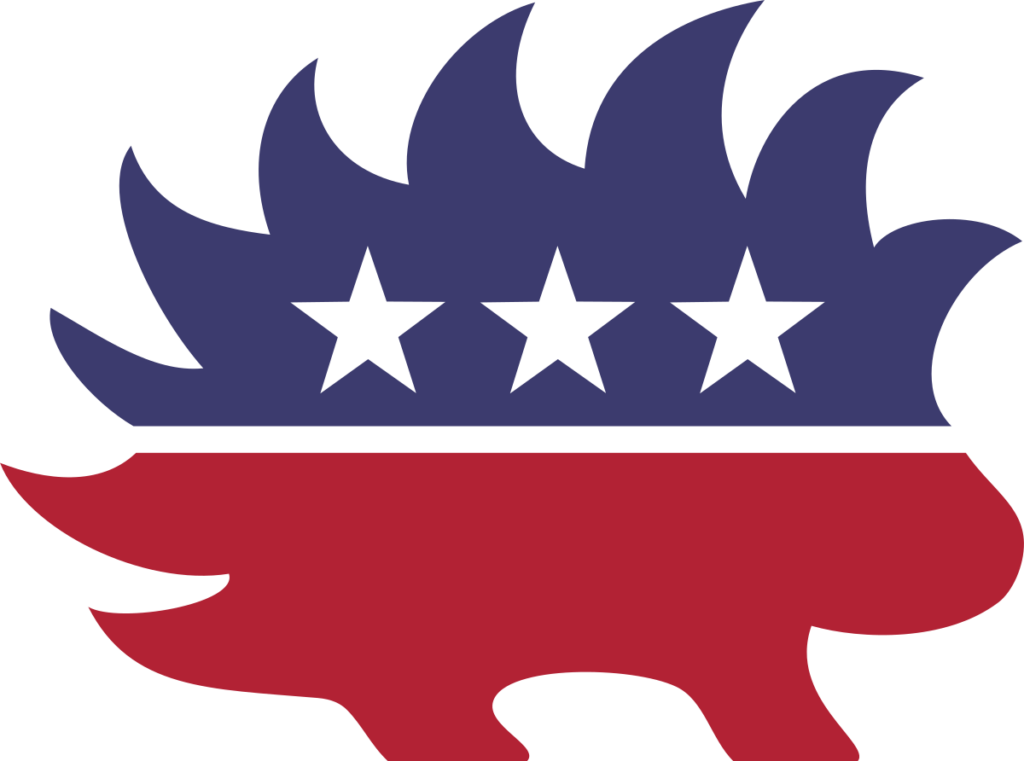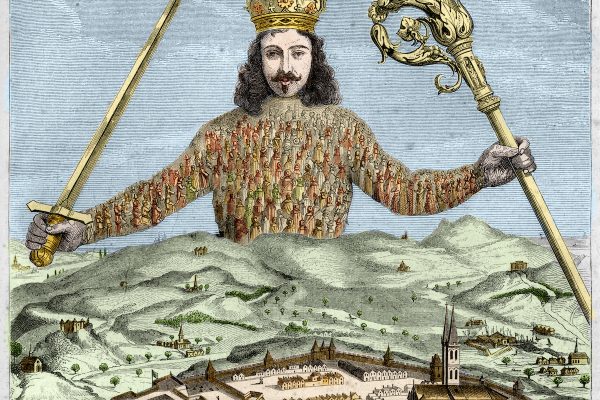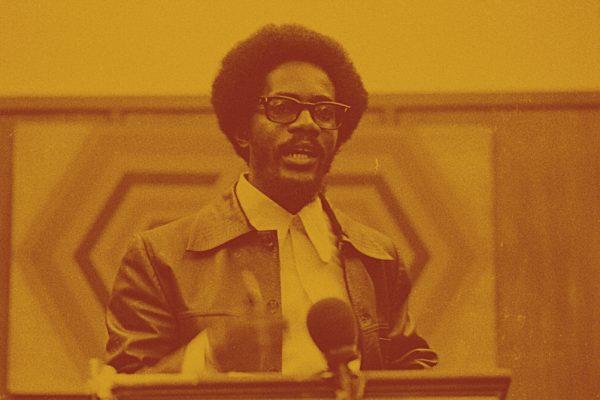Libertarianism is on the rise, thanks in good measure to many newly politicized techies who have married their live-and-let-live views about lifestyle to leave-me-alone views about taxes and government.
I viscerally understand the libertarian mystique, but, outside the fantasy novels of Ayn Rand and Robert Heinlein, libertarianism does not make much anthropological or historical sense. As a philosophy, it may; one can build a coherent moral system from almost any starting point, be it God’s breath upon the waters; the first self-replicating, “selfish” gene; or autonomous individuals signing a social contract. And versions of libertarianism have a fierce logical consistency. Robert Nozick’s starting point is the “fact of our separate existences”; “there is no social entity . . . . there are only individual people.” Charles Murray proclaims, “Freedom is first of all our birthright.” America’s founding revolutionists, inhaling the earliest wafts of libertarianism in the 1700s, declared that we are created with “unalienable rights”; that is, people cannot sell themselves into slavery even if they want to, so fundamental is the independence of the individual.
Great ideas, to be sure, but historically odd ones. Clifford Geertz pointed out that “the Western conception of the person as a bounded, unique . . . center of awareness, emotion, judgment, and action . . . is, however incorrigible it may seem to us, a rather peculiar idea within the context of the world’s cultures.” For most of history, including Philadelphia, 1776, more humans were effectively property than free. Children, youth, women, slaves, and servants belonged to patriarchs; many patriarchs were themselves serfs to chiefs and lords. And selling oneself into slavery was routine for the poor in many societies. Most world cultures have treated the individual as a limb of the household, lineage, or tribe. We moderns abhor the idea of punishing the brother or child of a wrongdoer, but in many cultures collective punishment makes perfect sense, for each person is just part of the whole.
What difference does this history and anthropology make to libertarian arguments about the good life? Plenty. If libertarians would move real-world policy in their direction, then their premises about humans and human society should be at least remotely plausible; we are not playing SimCity here. Instead, libertarian premises arise from a worldview that was strange at its origin and is strange now, after the global triumph of liberalism.
The Western, especially American, view of autonomous selves is anomalous.
Social psychologists have demonstrated how anomalous is the Western, especially American, view of autonomous selves. For example, Americans are likelier than others to explain what happens to people as a result of their individual traits and choices, to perform better when we are allowed to choose our own tasks, to get upset if we sense a lack of personal freedom, and to care greatly about our self-esteem. Psychologists Joseph Henrich, Steven Heine, and Ara Norenzayan synthesized much of this work in a well-received 2010 article, “The Weirdest People in the World?” They conclude that, yes, Americans are the weirdest; they are most likely to “conceive of themselves primarily as self-contained individuals . . . as autonomous agents,” rather than as “interpersonal beings intertwined with one another in social webs.” Americans, for example, seem unique in assigning babies their own rooms. That such fundamental cross-national differences persist after centuries of Western colonialism and a hundred years of American cultural hegemony testifies to the historical oddity of the libertarian premise.
The individual was not the prime mover of history, but its result. Emile Durkheim objected to “deducing society from the individual” for “we possess no knowledge that gives grounds for believing in the possibility of such a spontaneous generation.” “Collective life,” he argued, “did not arise from individual life; on the contrary, it is the latter that emerged from the former.” Libertarian thinkers have reinvented history to place the autonomous self at creation.
Of course, libertarians can concede that society preceded the individual but still argue that government was formed by contract. Spontaneous, voluntary groups grew into the minimal state, which they see as the only legitimate state. But this is also bad history. The state, as a distinguishable institution—whether Roman, Aztec, American—is distinctive, but rulership is universal, or nearly so. Chiefs, councils of elders, and “big men” all sought to monopolize power and maintain order. Government rarely if ever emerged from social contracts. (A few supra-governments emerged from contracts among lesser governments, as in Philadelphia, 1789.) Bentham thundered this point in the early days of libertarianism: “There are no such things as natural rights—no such things as rights anterior to the establishment of government.” Research explaining why rates of interpersonal violence have declined over the centuries backs this up: domestic order is necessary so that individuals can have rights against the assaults of other individuals. “The origination of governments,” Bentham continues, “from a contract is a pure fiction . . . . It never has been known to be true in any instance . . . . All governments that we have any account of have been gradually established by habit, after having formed by force.”
Libertarians can concede this, too, claiming only that their just-so story serves moral philosophy. Nozick writes, “We learn much by seeing how the state could have arisen, even if it didn’t arise that way” because he is making a moral argument. Modern Westerners do indeed endorse the principles of individual self-ownership and universal rights. We do so, however, not because the principles are self-evident but because our thoughts on the matter are the product of modern Western philosophy.
If libertarian positions cannot be justified by reasoning from history or anthropology, they might be justified by practicality: “That government which governs best governs least . . . . [indeed,] that government is best which governs not at all,” Thoreau claimed in a characteristically solipsistic declaration. (Not paying taxes was Thoreau’s way of remaining unstained by connection to slavery, yet it took big government to end slavery.) In today’s policy debates, libertarians argue that their philosophy guides us toward both more individual freedom and better collective outcomes.
Writing in Salon, Michael Lind taunted libertarians on this claim: “If your approach is so great, why hasn’t any country anywhere in the world ever tried it?” In the scramble to answer the challenge, conservative blogger Ben Domenech, quoting Robert Tracinski, points to “America itself, up to about 100 years ago,” with “no federal welfare state, no Social Security, no Medicare. . . . Life for the common man was better than it had ever been before.” Yet Domenech concedes, “Life was nowhere near as good [then] as it is for Americans today—after another century of progress.” Americans’ life expectancy, health, physical security, and living standards soared in the 20th century—not, however, because of the march of libertarianism, as Domenech insinuates, but in great measure because of the welfare state and of regulation of food, medicine, water, work safety, pollution, and so on. Personal liberty itself has also improved in the last century, with civil rights for minorities and women and broader guarantees of civil liberties. These advances, too, largely developed not against government but with it.
The American western frontier illustrates what libertarians might consider the minimal, “night watchman” state. Yet that watchman was often outgunned by desperadoes and vigilantes. The high homicide rates there and in the frontier-like quarters of 19th century American cities came down largely because a bigger state—policing—stood up. American history testifies against the libertarian thesis.
So do contemporary cross-national data using the Human Development Index, which measures a population’s well-being in terms of health, education, and wealth. The HDI, corrected for internal distribution (the Bill Gates-makes-all-Americans-look-rich factor), is typically higher in OECD nations where governments are relatively large.
Both historical and contemporary research suggests that Thoreau was wrong; the government that governs least does not govern best, whether the criterion is promoting the general welfare or promoting individual liberty. This does not mean that the converse is true, that maximal government is best. There appears to be a reasonable balancing point. We Americans seem to be below that reasonable point, and libertarianism threatens to drive us further down. Of course, Rand’s John Galt wouldn’t give a damn.








